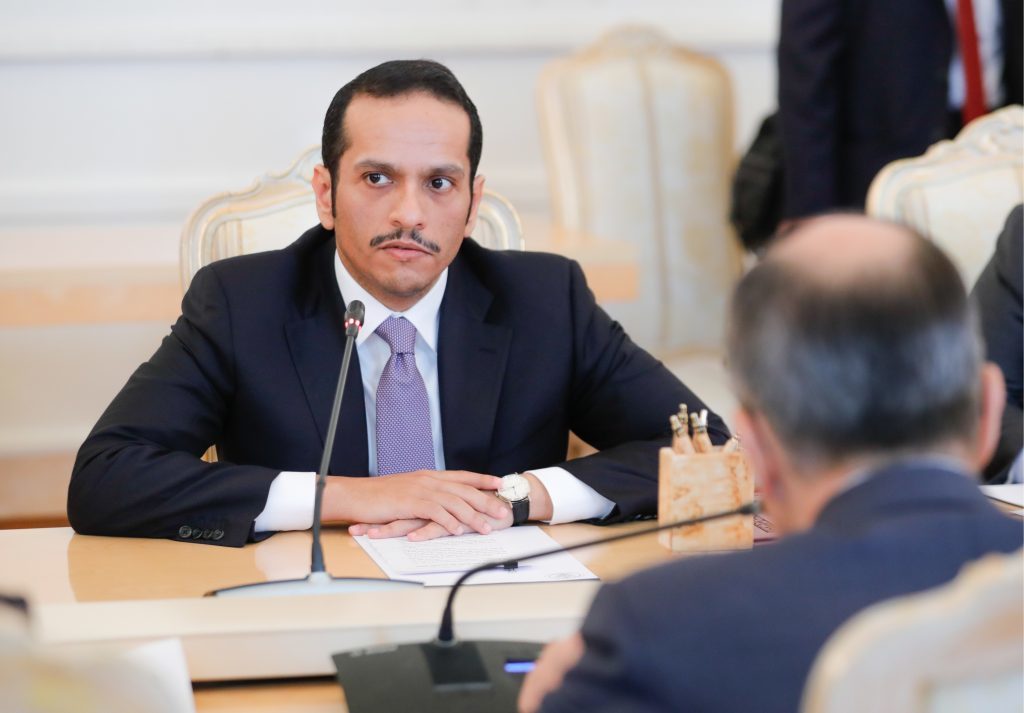
Qatar has said it is “very comfortable” and can survive the economic and diplomatic steps its neighbours have taken to pressure it “forever”.
The country faces a sweeping set of demands and a top Emirati official has warned it to brace for a long-term economic squeeze.
Given 10 days to make a decision, Qatar said it was reviewing the specific concessions demanded of the tiny Persian Gulf nation, which include closing Al Jazeera and cutting ties to the Muslim Brotherhood.
But Qatari officials did not budge from their previous insistence that they will not sit down with Saudi Arabia and other Arab nations to negotiate while under siege.
“I can assure you that our situation today is very comfortable,” Qatari Ambassador to the US Meshal bin Hamad Al Thani said. “Qatar could continue forever like that with no problems.”
Asked whether Qatar felt pressure to resolve the crisis quickly, he said: “Not at all.”
Qatar’s neighbours insisted the 13-point list of demands was their bottom line, not a starting point for negotiations.
If Qatar refuses to comply, the Arab countries signalled they will continue to restrict its access to land, sea and air routes indefinitely, as economic pressure mounts.
“The measures that have been taken are there to stay until there is a long-term solution to the issue,” Emirati Ambassador to the US Yousef al Otaiba said.
Suggesting the penalties would only be economic and diplomatic, he said “there is no military element to this whatsoever”.
Having urged Qatar’s neighbours to come up with “reasonable and actionable“ demands, the US has sought to distance itself from the crisis.
The Arab countries issued a list of demands that included several provisions Qatar had already declared it could or would not accept.
The ultimatum was quickly rejected by Qatar’s ally, Turkey, and blasted as an assault on free speech by Al Jazeera, the Qatari broadcaster.
The demands from the Saudis, the Emiratis, the Egyptians and the Bahrainis amount to a sweeping overhaul of Qatar’s foreign policy and natural gas-funded influence peddling in the region.
Complying would force Qatar to bring its policies in line with the regional vision of Saudi Arabia, the Middle East’s biggest economy and gatekeeper of Qatar’s only land border.
“This reflects basically an attempt from these countries to suppress free media and also undermine our sovereignty,” said Mr Al Thani.
“They are trying to impose their views on how the issues need to be dealt with in the Middle East.”
“They are bullies,” he added.
The demands include shutting news outlets, including Al-Jazeera and its affiliates; curbing diplomatic relations with Iran and severing all ties with Islamist groups including the Muslim Brotherhood.
The four countries cut ties with Qatar earlier this month over allegations that it funds terrorism – an accusation US president Donald Trump has echoed.
Qatar denies funding or supporting extremism but acknowledges that it allows members of some extremist groups such as Hamas to live in Qatar, arguing that fostering dialogue is key to resolving conflicts.
The move by Qatar’s neighbours has left it under a de facto blockade.
Although residents made a run on the supermarket in the days after the crisis erupted, the situation has since calmed as Qatar secured alternative sources of imported food from Turkey and elsewhere.
The demands include:
– Curb diplomatic ties with Iran and limit trade.
– Stop funding other news outlets, including Arabi21, Al Araby Al Jadeed and Middle East Eye.
– Hand over “terrorist figures” and wanted individuals from the four countries.
– Stop all means of funding for groups or people designated by foreign countries as terrorists.
– Pay reparations.
– Stop all contact with the political opposition in Saudi Arabia, the UAE, Egypt and Bahrain.
